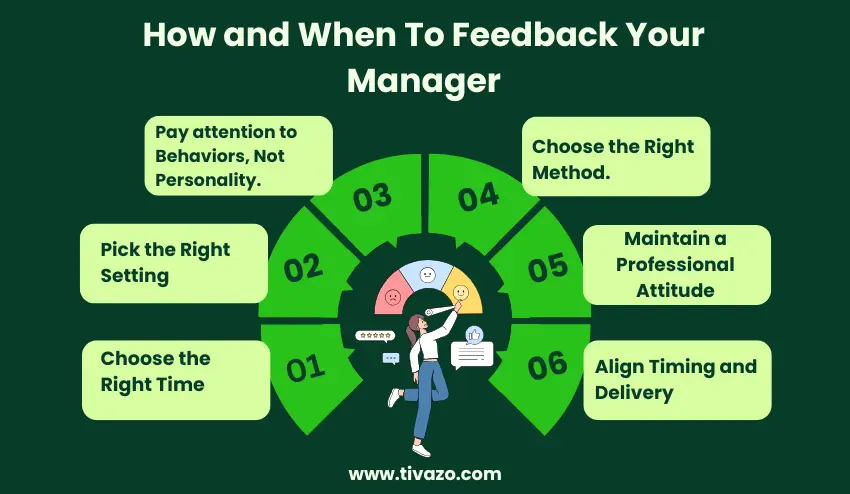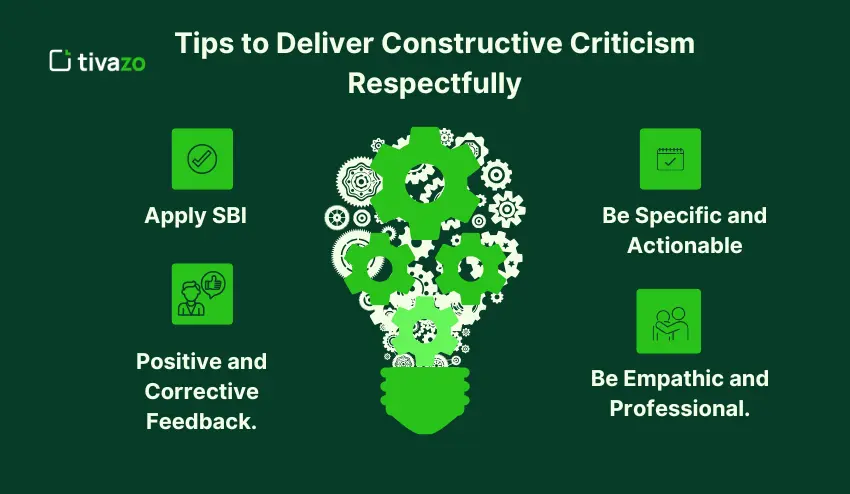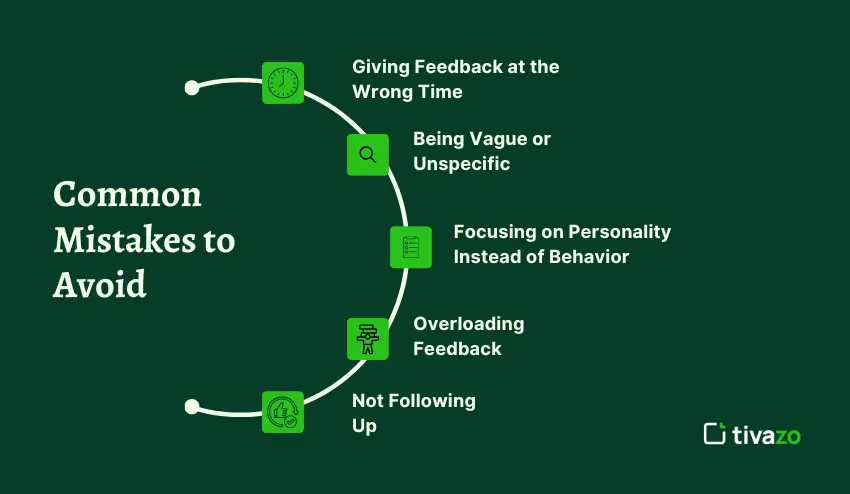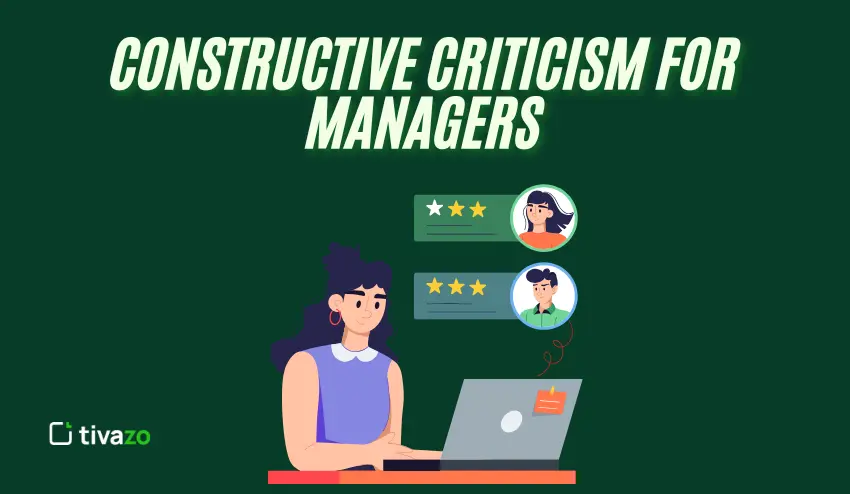It is easy to criticize others but when it comes to providing feedback to a manager, the scenario is different. The employees are reluctant to take up issues that are evident to them regarding the performance of the team, because of the power dynamics. A good number remain silent fearing that they might be misinterpreted by raising their voices.
This is why constructive criticism for managers is very essential. It offers a decent method of pointing out concerns and maintaining the discussion in a professional manner. In contrast with stern criticism, constructive feedback is solution-oriented and goal-oriented. It is not about bringing someone down, it is about making work smoother. Properly done, it will assist the managers in developing as well as enhancing the workplace culture.
In this blog, I will take you through all you need to know about constructive criticism for managers. You will find out why it is important, when it should be raised and how to articulate your points in a manner that will be well received. I will also provide real life examples, tips that have worked in practice, and a check list to help you out before your next discussion. At the end, you will be prepared to use feedback as a means of more effective cooperation with your manager.
What Is Constructive Criticism for Managers?
Constructive criticism for managers is feedback that points out an issue while also suggesting a way forward. It is not about pointing out shortcomings, simply to do it. Rather, it concerns how to respect your manager and provide feedback that can enable him to become better.
As an illustration, you may say, I find project directions to be a little vague, rather than saying, You never give clear instructions. If we had written steps, it would assist me to get things done in a faster manner. The distinction lies in the delivery. The former remarks without being specific and the latter points out a problem and provides a solution.
Constructive criticism is aimed at growth. It is not uncommon that managers do not realize how their habits impact the team, and the employees can best offer that point of view. Feedback that is delivered in a professional and respectful manner builds trust and increases workplace productivity.
Why Giving Constructive Feedback to Managers Is Essential
Most employees feel that feedback can only go in one direction, that is, manager to team. However, in practice, the workplaces flourish when the information flows in both directions. Providing constructive feedback to the managers provides them with opportunities of improvement which leaders would never realize on their own.
By letting employees make observations, managers are able to have a better understanding of the impacts their decisions have on the team. This assists them in modifying communication, workload allocation and leadership style. In the long run, it enhances cooperation and boosts confidence. In the absence of such input, minor problems may escalate to long-term problems that reduce performance.
Workplace culture is another reason why upward feedback is needed. Teams in which employees feel comfortable to make contributions tend to be more morale and more engaged. Organizations can do this by promoting upward feedback, which is an expression that all voices count, not only the highest-ranking ones. Such a culture minimizes misinterpretation and loyalty is developed.
Positive criticism is also helpful to the employees. Once the managers get helpful feedback, they are able to eliminate obstacles, enhance clarity, and make the environment more supportive. To put it in a few words, feedback does not only serve the development of the leader, but also makes it easier to work on daily basis in the entire team.
How and When To Feedback Your Manager.

Choose the Right Time
Timing is crucial when giving constructive criticism for managers. Ideally, you will plan your talk at a quiet time, say during one-on-one meeting. It is best not to go to your manager when there are high pressure deadlines or when things are tense. Choosing the right moment makes your constructive criticism for managers more likely to be well received.
Pick the Right Setting
Private meetings are usually best for giving constructive criticism for managers because they allow for open, honest dialogue. Where a one-on-one cannot take place, ask to have a brief, concentrated discussion rather than bringing up points during a group discussion. This ensures your constructive criticism for managers stays professional and productive.
Pay attention to Behaviors, Not Personality.
Frame your constructive criticism for managers around specific actions rather than personal traits. As an example, you can say that, “I noticed that the meeting took longer than usual”, and it was difficult to complete tasks, rather than “You waste everyone time in meetings.” This makes it easier for your manager to hear your constructive criticism for managers without feeling attacked.
Choose the Right Method.
Select the most effective approach to you and your manager. Face-to-face conversations are ideal for giving constructive criticism for managers. You can receive written feedback through email which will give you clarity and document of your suggestions. In larger organizations, anonymous tools can also be effective for sharing constructive criticism for managers without hesitation.
Maintain a Professional Attitude
When providing constructive criticism for managers, maintain respect and a positive attitude. Focus on constructive ideas, not complaints. A professional tone makes sure your constructive feedback for managers is seen as helpful feedback instead of personal criticism.
Align Timing and Delivery
Timing and delivery are crucial to the impact of constructive criticism for managers. When you take the time to clarify your approach to constructive criticism for managers in a respectful and actionable way, you are much more likely to create a meaningful change.
Examples of Constructive Criticism You Can Use with Managers
Providing constructive criticism for managers becomes easier when you have ready-to-use examples. The phrases and templates that you can modify to suit your case are listed below. The examples are all aimed at being professional, precise and actionable.
Communication & Clarity
- “I occasionally do not understand project directions. If we had written steps, it would assist me to do things more effectively.” Using specific examples makes your constructive criticism for managers actionable.
- “I observe that during meetings, there are points which are repeated. Concluding decisions at the conclusion would be useful in ensuring that everyone is on track.” This wording maintains the concentration on solutions.
- “It would be nice to be updated on the priorities of the project periodically. In such a manner, I will be able to organize my work.”
Delegation & Workload
- “I observed duplication of roles in the team. Better team workload management would help in creating less confusion.” This is a professional way to give constructive criticism for managers.
- “Certain tasks seem to be intimidating because of close deadlines. Is it possible to talk about schedule changes to improve performance?“
- “I like to have chances to get ownership. Perhaps, a redistribution of tasks according to the skills sets would enhance efficiency even more.“
Meeting Effectiveness
- “Meetings occasionally extend past the schedule. Having an agenda could help them to be more productive.”
- “Some meetings are not related to my job. Is it possible to concentrate the agendas on relevant things?“
- “I also consider follow-up notes to be useful in post-meetings. Their frequent sharing would help in clarifying the team.”
Recognition & Appreciation
- “I value feedback on my work. Frequent check-ins may assist me in knowing what is working and what requires some changes.”
- “Rewarding the accomplished milestones encourages the team. Small wins can be celebrated to improve morale.“
- “I get inspired when my contributions are observed. Feedback during team meetings may serve to keep the team engaged.”
Problem-Solving & Decision-Making
- “There are instances when decisions are made in a hurry. Better results may be achieved by discussing alternatives.”
- “I appreciate your guidance. Justification of decisions assists the team in knowing priorities.“
- “Buy-in and collaboration can be enhanced by involving team input on some of the decisions.”
General Upward Feedback
- “I need greater professional development. Is it possible to speak about possible development plans?“
- “I see that there are certain processes that can be more effective. Is it possible to make them simpler?”
- “Your comments about my work are welcome. Is it possible to plan frequent check-ins to review progress?“
Tips to Deliver Constructive Criticism Respectfully

Apply SBI (Situation-Behavior-Impact) Model.
When giving constructive criticism for managers, describe the situation, explain the behavior, and share the impact. As an example, in our weekly meeting (situation), there were some agenda items that were repeated (behavior), which complicated my ability to concentrate on my tasks (impact). Using the SBI model maintains professional feedback.
Positive and Corrective Feedback.
Begin by identifying what your manager is doing well then give suggestions. As an example, I like the way you motivate the team. Sharing written updates after meetings can be one of the things that can assist even further. Being fair to the other person by balancing the praise with constructive points makes your feedback easier to accept.
Be Specific and Actionable
Do not use general remarks such as, You need to communicate better. Rather, give practical examples or recommendations. Precise wording is also what makes your constructive feedback to managers practical and more responsive to action.
Be Empathic and Professional.
Look at approach feedback with the attitude of wanting to help your manager get better, not blaming him or her personally. Respectful delivery encourages open dialogue and increases the chances your constructive criticism for managers will lead to positive change.
Case Study: How Constructive Criticism Changed a Manager’s Approach
Sharing constructive criticism for managers can lead to tangible improvements in the workplace. The following is an experience that explains this.
One of the team members observed that their manager often missed meeting their responsibilities of updating them on the priorities of the project. Due dates were not met and the team was frustrated. Instead of complaining, the employee used constructive criticism for managers by scheduling a private one-on-one and following the SBI model. They stated, in the previous sprint (situation), I observed that project updates were delayed (behavior), and it was more difficult to prioritize the tasks as a team (impact). Is it possible to schedule weekly update meetings in order to prevent this?
The feedback was taken well by the manager. Their weekly project updates and the openness to discuss issues with the team have been implemented. In the long run, the deadlines became better and the morale of the teams was boosted. This case shows that thoughtful constructive criticism for managers doesn’t just highlight problems, it provides solutions and strengthens collaboration.
Moreover, this strategy assisted the employee in creating a better relationship with the manager. The manager appreciated the feedback, considered the employee proactive, and the workflow in the team was more organized.
Common Mistakes to Avoid When Giving Feedback to Your Boss
Despite your best efforts, providing constructive feedback for managers may not go in the right direction if you cant avoid these common mistakes. Recognizing the possible pitfalls will help you make your feedback effective and acceptable.

1. Giving Feedback at the Wrong Time
Timing is everything. Providing feedback during highly charged moments or setting tough and busy deadlines will often cause your constructive feedback for managers to seem confrontational or not at an ideal time. You should always try to choose the calmest and most personal time to provide feedback.
2. Being Vague or Unspecific
General comments like “You need to be a better communicator” are overly broad. Specific and actionable points make your constructive feedback for managers useful and also easier to put into action. Instead, use examples and concrete suggestions.
3. Focusing on Personality Instead of Behavior
The relationship can be destroyed easily by criticizing the character of the manager. Never concentrate on the characters of the individual but on the observable behaviors or processes. This ensures your constructive criticism for managers is seen as professional and helpful.
4. Overloading Feedback
A manager can be overwhelmed by giving too many points at a time. Limit the number of areas to concentrate on in a conversation. This allows your constructive criticism for managers to be actionable and increases the likelihood of positive change.
5. Not Following Up
The best feedback occurs when it is a conversation. Failing to follow up can make your constructive criticism for managers seem like a one-off complaint rather than a collaborative effort.
When you avoid these mistakes, your critique becomes a source of learning instead of entrenchment. When you communicate clearly and respectfully, you increase the possibility that your constructive criticism for managers leads to actual learning, as opposed to mere avoidance tactics.
Conclusion
Giving constructive criticism for managers is an ongoing skill that both employees and managers benefit from. Constructive feedback that is clear, respectful, and outlined in a manner that allows for improvement can promote improvement in managers, build collegiality and teamwork, and encourage a healthy workplace culture.
When giving constructive criticism for managers, focus on the behaviours exhibited, provide examples, and consider whether you’re providing feedback in the right place, time and/or the appropriate emotion. Use the behaviours framework of SBI, provide a balance of positive and constructive feedback, and always remember to follow up where possible. When you follow these steps, the constructive criticism for managers’ messages communicated will be effective, professional and impactful when you need to provide feedback to managers.
In conclusion, the examples, ideas, and checklist in this guide are intended to encourage your confidence in giving effective feedback that will benefit both you, a colleague, and sometimes, the manager themselves. The steps you have for giving feedback will allow for the feedback process to be thought of as a positive development opportunity and not merely a conflict. With some deliberate thought around preparation and evidence use, your constructive criticism for managers will allow your feedback to be meaningful and invite a chance for improvement for you and your teams.




